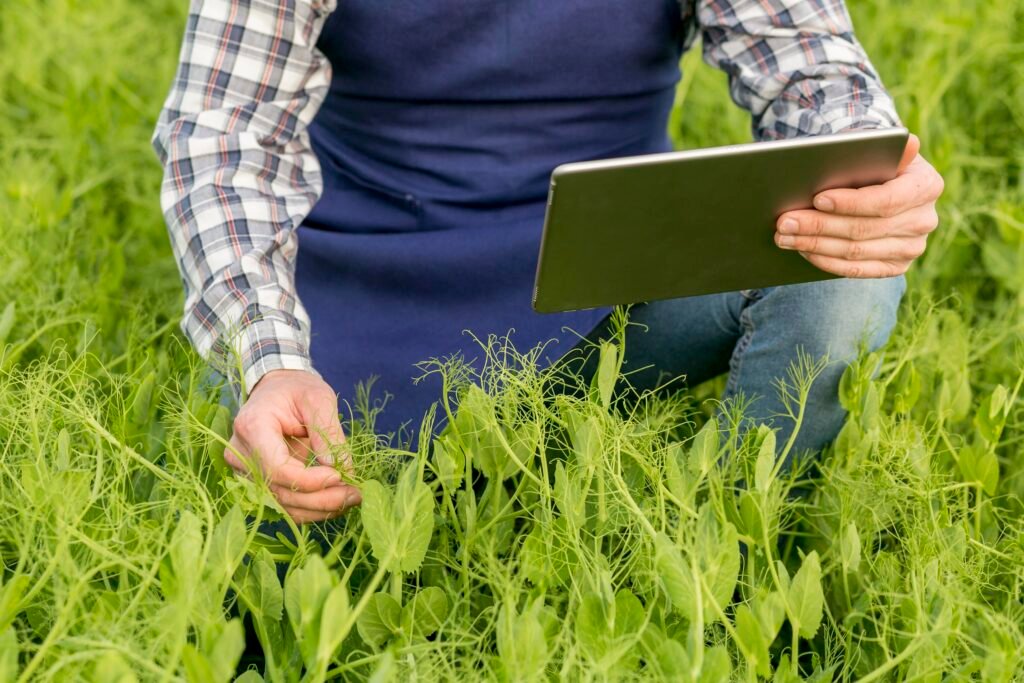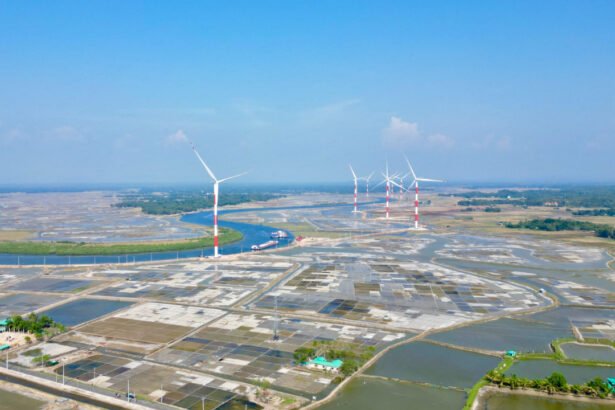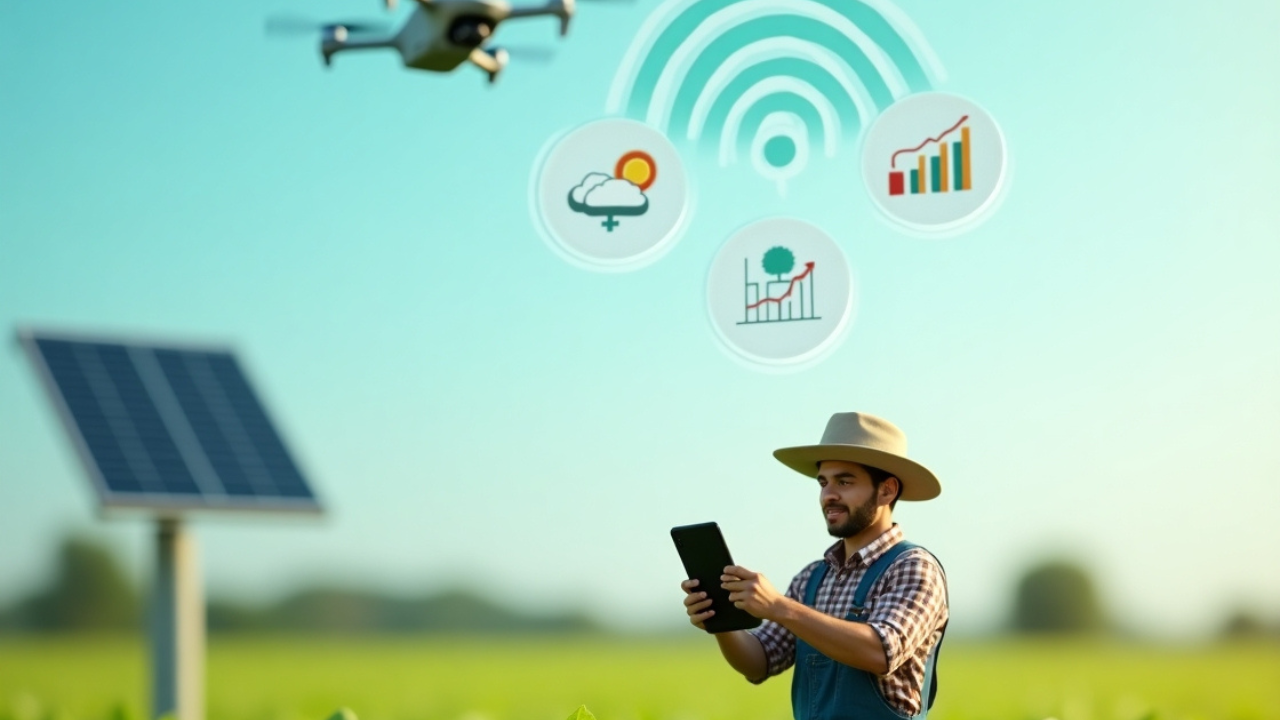In today’s fast-changing agricultural landscape, small farmers are facing unprecedented challenges. From shifting climate patterns and unpredictable weather to resource scarcity, soil degradation, and mounting pressure to meet the global demand for food, their work has never been more difficult or more important. Despite contributing significantly to the world’s food supply, smallholder farmers have long remained underserved by modern technology and innovation. However, the growing availability of digital farming tools is beginning to change that reality. These tools are helping bridge the gap by providing small farmers with access to real-time data, smarter decision-making capabilities, and more efficient resource management — ultimately empowering them to thrive in an increasingly complex agricultural environment.
In 2025, a quiet revolution is unfolding in rural fields and farming communities across the globe. Powered by an evolving wave of farming technology 2025, these farmers are now embracing a new generation of digital tools that are not only affordable and accessible, but also scalable to fit their unique challenges and goals.
What was once considered futuristic — using satellites to monitor soil health, AI to diagnose plant diseases, or mobile apps to access markets and financing — is now becoming the everyday norm for millions of small-scale farmers. These tools are empowering them to boost productivity, lower costs, and make smarter, data-informed decisions. Even more importantly, they’re enabling these farmers to adopt sustainable agricultural practices that protect the environment while securing their livelihoods for generations to come.

The Most Impactful Digital Farming Tools in 2025
This blog explores 10 of the most impactful digital farming tools in 2025 — innovations that are truly transforming the way smallholders operate. Whether it’s through smart irrigation systems, precision farming platforms, or mobile-based advisory services, these tools are helping build a more resilient, inclusive, and tech-savvy global farming community.
1. Plantix – The AI Agronomist in Your Pocket
What it is:
A mobile app powered by artificial intelligence that helps farmers identify crop diseases, pests, and nutrient deficiencies simply by uploading a photo.
Why it matters:
Plantix empowers small farmers with expert-level diagnostics, guiding them toward the right treatment and improving crop survival rates.
2. FarmCrowdy – Connecting Farmers to Resources
What it is:
A Nigerian platform that connects smallholder farmers to funding, inputs, and markets via digital matchmaking.
Why it matters:
It tackles one of the biggest barriers small farmers face: access to capital and buyers. It’s a vital agricultural innovation for rural empowerment.
3. Taranis – Aerial Imaging for Precision Decisions
What it is:
An AI-driven tool using drones and satellite imagery to monitor crops and detect threats at leaf-level precision.
Why it matters:
With remote sensing, even small farms benefit from precision farming tools previously available only to industrial-scale operations.

4. Hello Tractor – Uber for Farm Equipment
What it is:
An innovative platform allowing farmers to rent tractors through mobile apps, connecting equipment owners with local farmers.
Why it matters:
Many small farmers can’t afford tractors, but Hello Tractor gives them affordable access — increasing efficiency and reducing labor costs.
5. AgriWebb – Farm Management Made Simple
What it is:
A cloud-based farm management software that simplifies record-keeping, livestock tracking, crop planning, and compliance.
Why it matters:
Even a modest farm can be run like a data-driven business with AgriWebb — empowering small farmers to optimize every inch of land.
6. eKutir – Farmer-Friendly Marketplace
What it is:
A digital ecosystem from India that offers customized agri-advisory services, micro-entrepreneurship training, and a digital produce marketplace.
Why it matters:
By integrating tech with human networks, eKutir helps small farmers gain market access and expert guidance — a real boost for farming technology 2025.
7. CropX – Smart Soil Sensing
What it is:
An IoT-based sensor system that collects real-time soil data and delivers actionable irrigation insights via mobile.
Why it matters:
Water efficiency is critical. With IoT in agriculture, even the smallest farm can make data-backed watering decisions to save water and energy.

8. AgUnity – Blockchain for Rural Farmers
What it is:
A blockchain-powered app that helps farmers in remote regions track transactions, share resources, and build trust within co-ops.
Why it matters:
It improves transparency, builds credit histories, and connects smallholder farmers to formal financial systems.
9. Pix4Dfields – Satellite-Enhanced Crop Mapping
What it is:
A drone software tool for generating detailed, real-time maps of crop health, biomass, and stress.
Why it matters:
Affordable, actionable data that once required agronomists can now be generated by small farmers with a drone and a phone.
10. WhatsApp – The Unexpected Agri Hero
What it is:
Yes, good old WhatsApp is a lifeline. Farmer cooperatives, advisors, and agronomists are using it to share tips, market prices, weather alerts, and crop advice in real time.
Why it matters:
Sometimes the best digital tools for farmers are the simplest — it’s about connectivity, community, and rapid information sharing.
Why These Tools Matter for Farming Technology 2025
As we enter farming technology 2025, the focus is clear: make agricultural innovation accessible to the people who need it most. These tools:
- Empower smallholder farmers
- Improve yields and efficiency
- Protect the environment
- Strengthen food security
- Promote rural prosperity
The democratization of technology is no longer a dream — it’s happening now, in fields and farms across Africa, Asia, and Latin America.

Final Thoughts: Tech with Heart
Small farmers grow over 70% of the world’s food — yet they’ve often been left behind in the digital revolution. These digital tools for farmers in 2025 are closing that gap, bringing real innovation to the people who feed the world.
If you're an entrepreneur, policymaker, educator, or investor, supporting smart farming tools and platforms that serve small farmers is not just the right thing to do — it's the smart thing to do.








